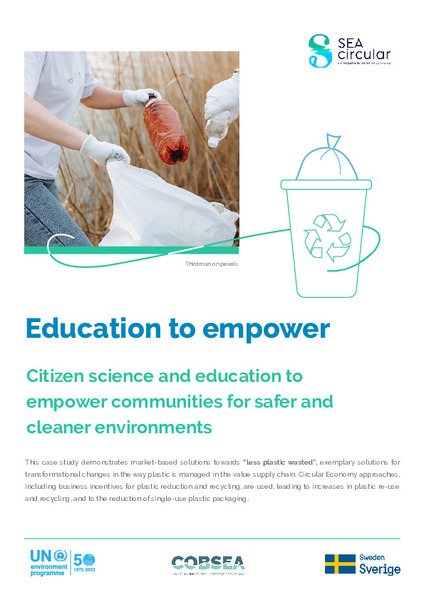| dc.contributor | Asia & Pacific Office | en_US |
| dc.contributor.author | United Nations Environment Programme | en_US |
| dc.contributor.author | Coordinating Body on the Seas of East Asia | en_US |
| dc.coverage.spatial | Asia and the Pacific | en_US |
| dc.date.accessioned | 2022-08-22T14:05:46Z | |
| dc.date.available | 2022-08-22T14:05:46Z | |
| dc.date.issued | 2022 | |
| dc.identifier.uri | https://wedocs.unep.org/20.500.11822/40500 | |
| dc.description | This case study demonstrates market-based solutions towards “less plastic wasted”, exemplary solutions for transformational changes in the way plastic is managed in the value supply chain. Circular Economy approaches, including business incentives for plastic reduction and recycling, are used, leading to increases in plastic re-use and recycling, and to the reduction of single-use plastic packaging. | en_US |
| dc.format | Text | en_US |
| dc.language | English | en_US |
| dc.relation.ispartof | SEA Circular Project | en_US |
| dc.rights | Public | en_US |
| dc.subject | education | en_US |
| dc.subject | capacity building | en_US |
| dc.subject | plastic waste | en_US |
| dc.subject | case study | en_US |
| dc.subject | empowerment | en_US |
| dc.subject | citizen science | en_US |
| dc.subject | environmental education | en_US |
| dc.title | Education to Empower: Citizen Science and Education to Empower Communities for Safer and Cleaner Environments | en_US |
| wd.identifier.sdg | SDG 4 - Quality Education | en_US |
| wd.identifier.sdg | SDG 12 - Responsible Consumption and Production | en_US |


